Nothing could have prepared social media marketers for the year 2020.
No person could have imagined that vaccinations, treatments, masks, and social distancing would emerge as some of the strongest driving factors in the marketing industry for nearly an entire year.
Throughout 2020, the pandemic guided nearly all marketing decisions, including the ways in which we developed advertising, social media content, and even web copy.
Moving into 2021, nearly all marketers share one common question:
As the pandemic begins to lift in the new year and people start to fill the streets, stores, and venues again, how will it all affect your marketing campaigns?
Find out what trends and techniques emerged as winners in 2020, and which will dominate 2021 – with data, examples, and ideas to help your team get a head start on the new year.
You’ll also get tips on how your team can prepare to pivot its messaging, ads, and content to the post-pandemic world of social media in 2021.
Personalized Social Media Advertising
Note: This data in this section comes from the (August) 2020 Book Of Social Advertising by Smartly.
In 2021, brands that want decent ROI from their advertising will need to watch social media trends closely and get exceptionally creative.
Consumers became increasingly resistant to social media advertising as the pandemic persisted throughout 2020.
In the U.S., interest in social media ads dropped to 17% compared to the previous 38%.
Social media advertising is critical to brand reach, though, and 2021 will bring an even-greater challenge to teams looking to boost their ROI.
You can engage ad-resistant consumers by tailoring your messaging and formats to relevant, personalized campaigns that utilize carousel and video ads.
- Personalized ads: Using data from your website, create dynamic ads containing personalized product suggestions based on customers’ browsing and purchase history.
- Photo carousel and video ads are the best ad formats for reaching consumers in the United States. Nearly 30% of U.S. consumers are open to carousel ads, and 26% to video ads.
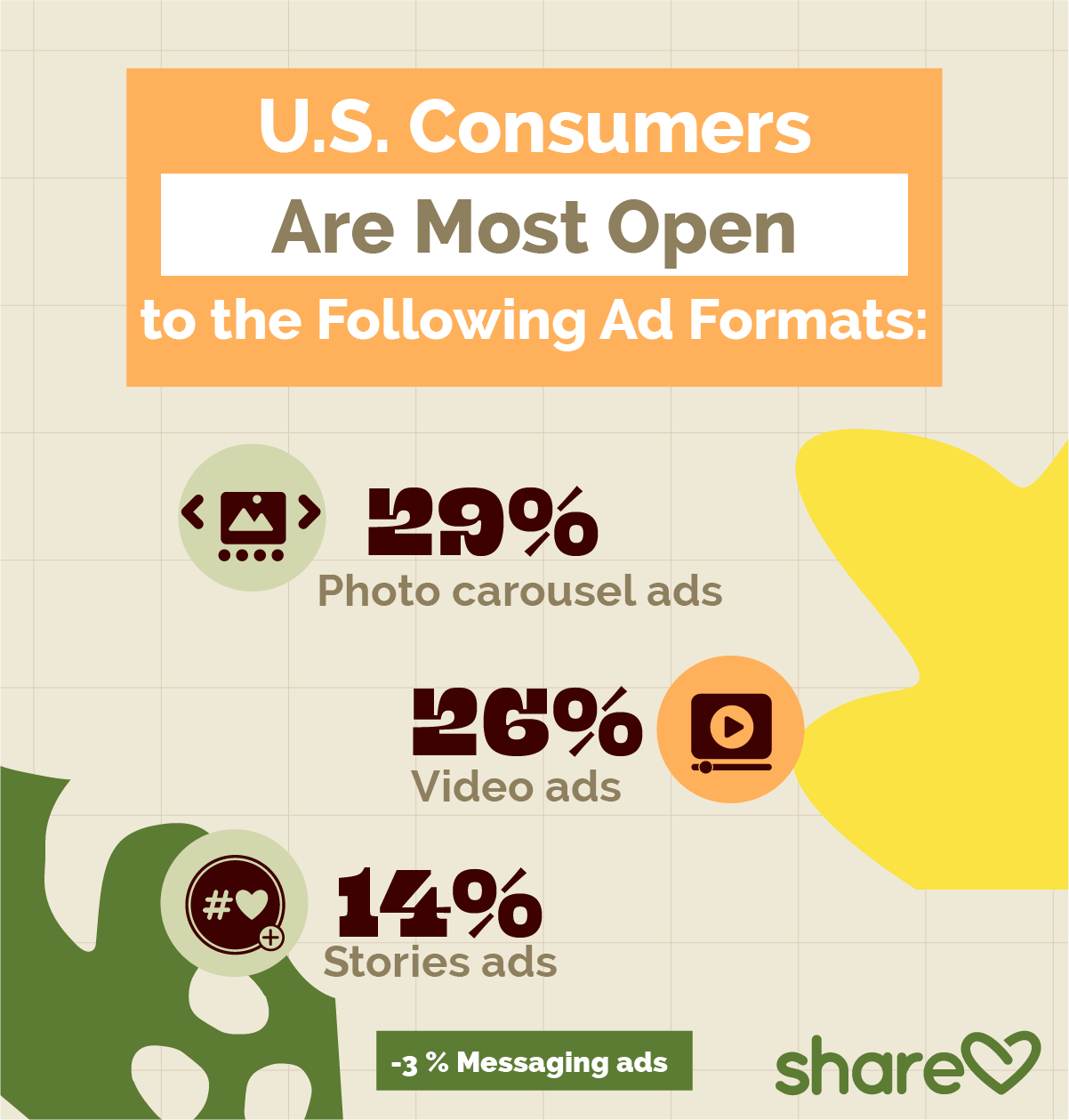
- Avoid messaging ads if you’re targeting shoppers in the U.S.
- Put less focus on the pandemic as society returns to normal: Until life returns to normal, acknowledging the pandemic is critical to connecting with your audience.
Nearly three-quarters (74%) of consumers currently expect brands to address the current situation.
However, brands should prepare to quickly pivot to a post-pandemic environment in which consumers don’t want reminders of lockdowns, layoffs, and isolation.
Listen to your audience and follow industry influencers closely for cues on your audience’s shifting communication preferences throughout 2021.
Sharelov’s monitoring tool can help you track your competitors’ ad activity and content on Instagram and Facebook. The tool also helps you track your brand mentions, industry influencers, relevant hashtags — all at no cost to Sharelov subscribers.
Join Sharelov today and begin monitoring your competitors’ ads (and much more!).
Personalization of content messaging will also become critical, since pandemic restrictions and side effects (such as unemployment) will lift for some people sooner than others.
In addition to your website data, keep an eye on your advertising and general social media analytics (insights) to understand how you can develop engaging ad campaigns.
Until the majority of people can get out of the house and back to work, consider acknowledging the pandemic with one of the three top ways consumers like to see brands react:
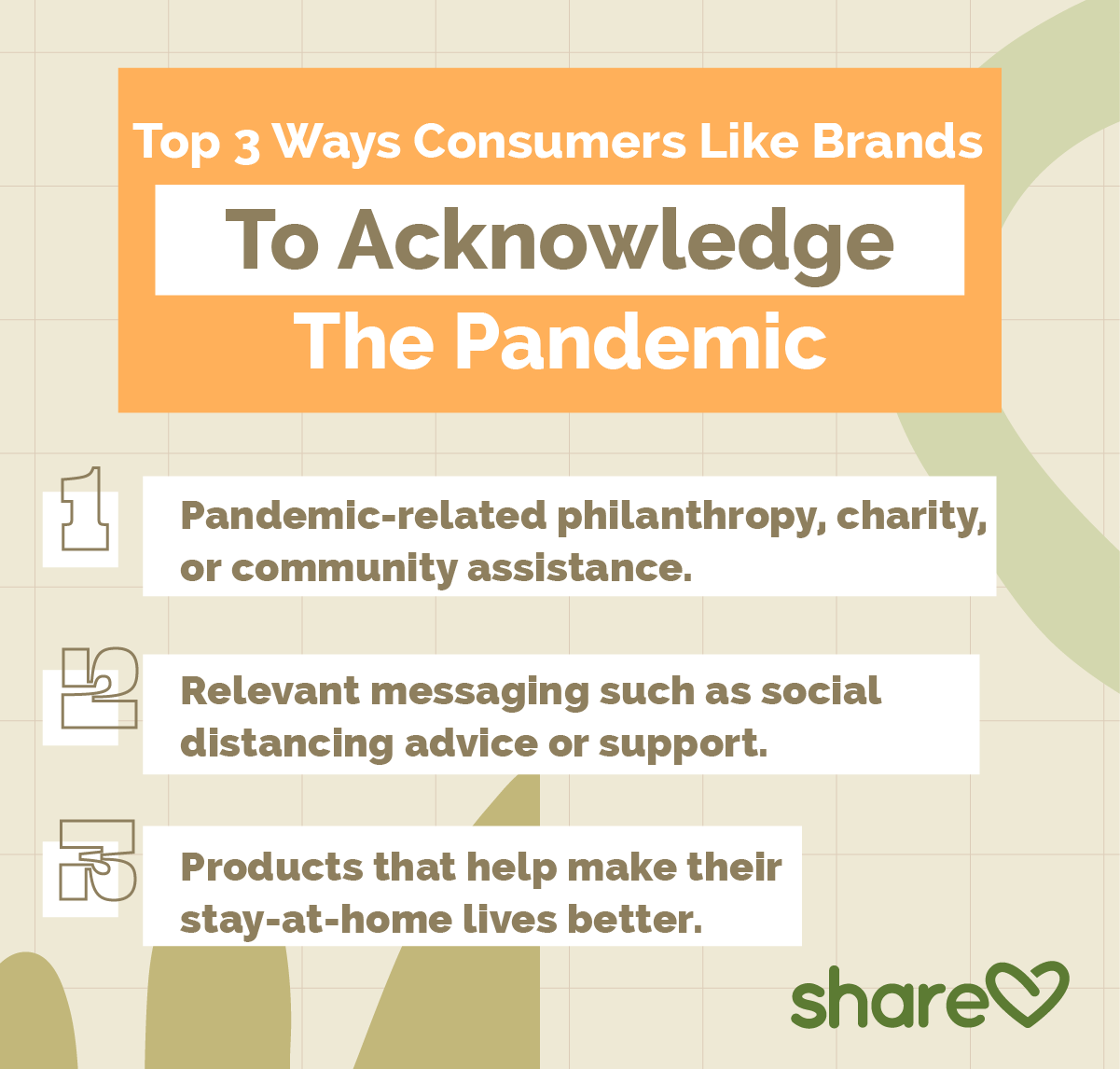
#1: Use your ads for pandemic-related philanthropy, charity, or community assistance.
#2: Use relevant messaging such as social distancing advice or support.
#3: Offer products that help make their stay-at-home lives better.
When building ad campaigns for 2021, leave room to adjust your brand messaging as the year develops.
Brands that want to thrive in the coming year should prioritize personalization and relevant messaging as key factors to creating effective campaigns.
Fortunately, consumers have been leaning in to personalized ads for quite some time, so the technology is well-developed and shouldn’t be much of a leap for brands who are new to the concept.
Brands that do sell directly on social platforms should also consider selling through social advertising.
51% of consumers worldwide purchased something from a social ad during the summer of 2020.
More than one-third of consumers tried a new product brand in 2020, and nearly two-thirds of those people intend to continue purchasing from those brands in the future.
This is good news for smaller, innovative brands, but also means that established brands shouldn’t assume that customers will remain loyal.
Brands that need to boost their returning customer sales should consider how they can improve upon the availability, convenience, and value of their products and services.
According to a consumer survey by McKinsey, availability is the #1 reason customers switched brands in 2020.
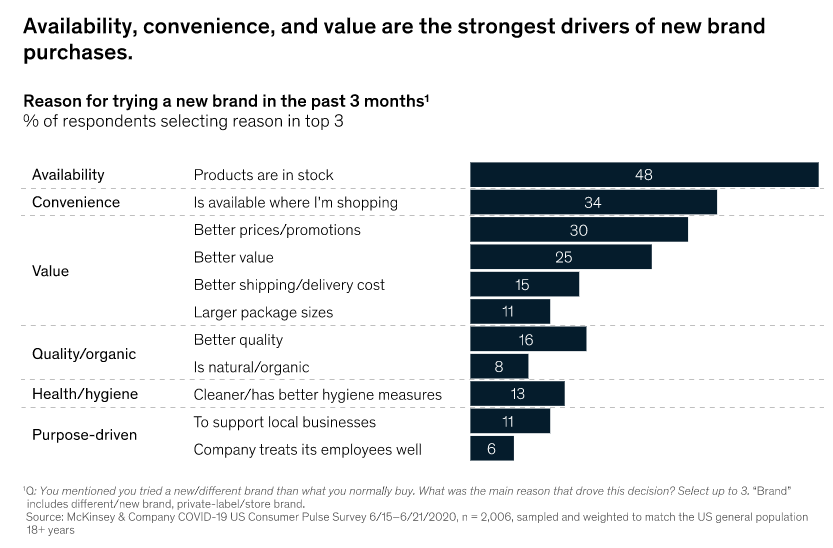
Source: McKinsey Report, The Great Consumer Shift
Social media shopping produces more sales for some industries than for others.
For example, fashion and beauty do well on social media, but the travel industry continues to struggle.
As the pandemic begins to lift in 2021, many things will change — some will be predictable, and others may come as a surprise.
Industries such as travel may dominate when people are able to enjoy vacations again, and beauty and fashion could even take a backseat.
No one can predict with certainty how consumers will react to the disruptions ahead, so it’s critical for you to follow your social media analytics closely throughout the year.
Regardless of industry ups and downs as the economy recovers, nearly all experts agree that online sales and social media shopping are here to stay, and will experience healthy growth in 2021.
Enhanced Content
More and more, social media fans and followers expect high-quality engaging content from brands on social media.
To catch attention and cultivate engagement on social platforms in 2021, brands will need to raise the bar on their content if they hope to compete for a piece of the sales.
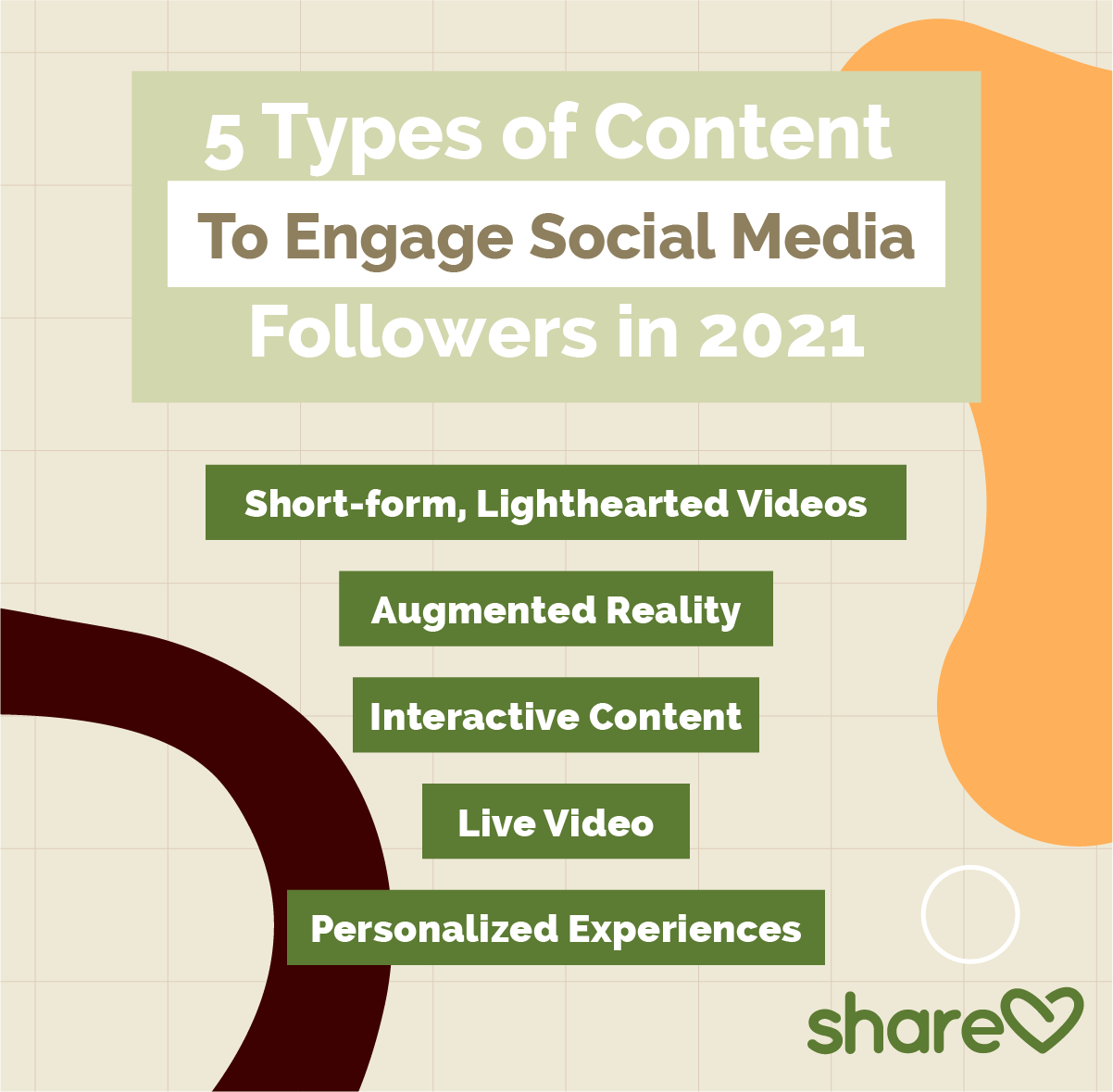
Below are some of the ways you can enhance your branded social media content to meet consumer expectations in 2021.
Short-form, Lighthearted Video
The rise of TikTok proves that consumers enjoy short-form videos packed with music, dance, and humor.
With a year of brutal political discourse and economic challenges behind us, you can likely expect consumers to shy away from fear-based, overtly-sensational, or insensitive social media content.
Use positive methods of attention-getting, such as humor, inspiration, and music, and avoid old-school headlines and content that may stir up unpleasant memories from 2020.
You can also experiment with short-form videos, and brands on Instagram can use Reels to try their hand at TikTok-similar videos.
Augmented Reality
Augmented reality that adds a “pop” of augmentation to images and videos can be an excellent way to deliver unexpected content that catches viewers’ attention.
For example, the Vogue Autralia post below adds sparkling diamonds and a kaleidoscope effect to enhance its video.
Augmented reality can go a long way toward helping you sell products, also.
For example, several App Store apps, including Instagram, Facebook Messenger, and Snapchat, allow customers to select a pair of shoes and virtually try them on (thank you, augmented reality).
Interactive Content
Interactive content such as quizzes, calculators, and polls can be an excellent way to engage social media users.
Quizzes are a long-time favorite of Facebook users, according to social media research firm Buzzsumo: the most-shared quiz of the past seven years received 10.3 million interactions (mostly from Facebook).

Source: Buzzsumo
Need more ideas for interactive content?
The Instagram Stories format is an excellent place to turn for inspiration and interactive tools and features. From questions to polls to augmented reality, the Stories format provides brands with several ways to increase engagement.
For example, Lego brand uses the Stories format (also available on Facebook) to create a guessing-game for Lego fans.
Xbox publishes two images and asks viewers to spot the differences.
Source: Xbox on Instagram
Both Lego and Xbox used simple methods to create compelling interactive games to target and engage their fans
Live Video
Video posts continue to engage social media users, and brands that use video grow their revenue almost 50% faster than brands that don’t.
Live streaming video on social media channels gained more popularity in 2020, and companies should expect even-greater demand for live broadcasts in 2021.
According to a recent report by Tech Jury, consumers prefer live video formats and spend $$$ with brands that publish them:
- 27% of viewers say they would rather watch a brand’s live stream video than read social posts, according to a Tech Jury report.
- 79% of people say a video has convinced them to buy a brand’s software or app.
- 40% of consumers say that videos increase their chance of purchasing from a mobile device.
If you haven’t incorporated live videos and events into your social media marketing, consider livestreaming on Instagram or publishing live events on Facebook.
Some of the most-popular types of live videos, across any platform, include:
- Industry events
- Behind-the-scenes
- Weekly chats
- Product demonstrations
- Influencer videos
- Q & A sessions
For example, Food network live-streamed clips of Guy Fieri’s press tour, then repackaged some of the clips into an Instagram Story.
Source: Food Network on Instagram
Live videos are an excellent way to engage social media users, and brands that publish them can expect to boost their sales.
Personalized Experiences
Expect to see more and more brands building one-on-one relationships with their social media followers in 2021.
As competition increases, building a personal connection with followers is one of the most effective paths to brand loyalty.
There are several ways your brand can build one-on-one relationships, including
- Tagging users in posts to thank them for following you.
- Responding to user comments in a friendly and consistent tone.
- Providing incentives for posting user-generated content.
- Providing high-quality, personalized customer service on social media.
Responding to user comments is critical to forming a connection with followers, but it can be a challenge to track and respond to every single social media comment.
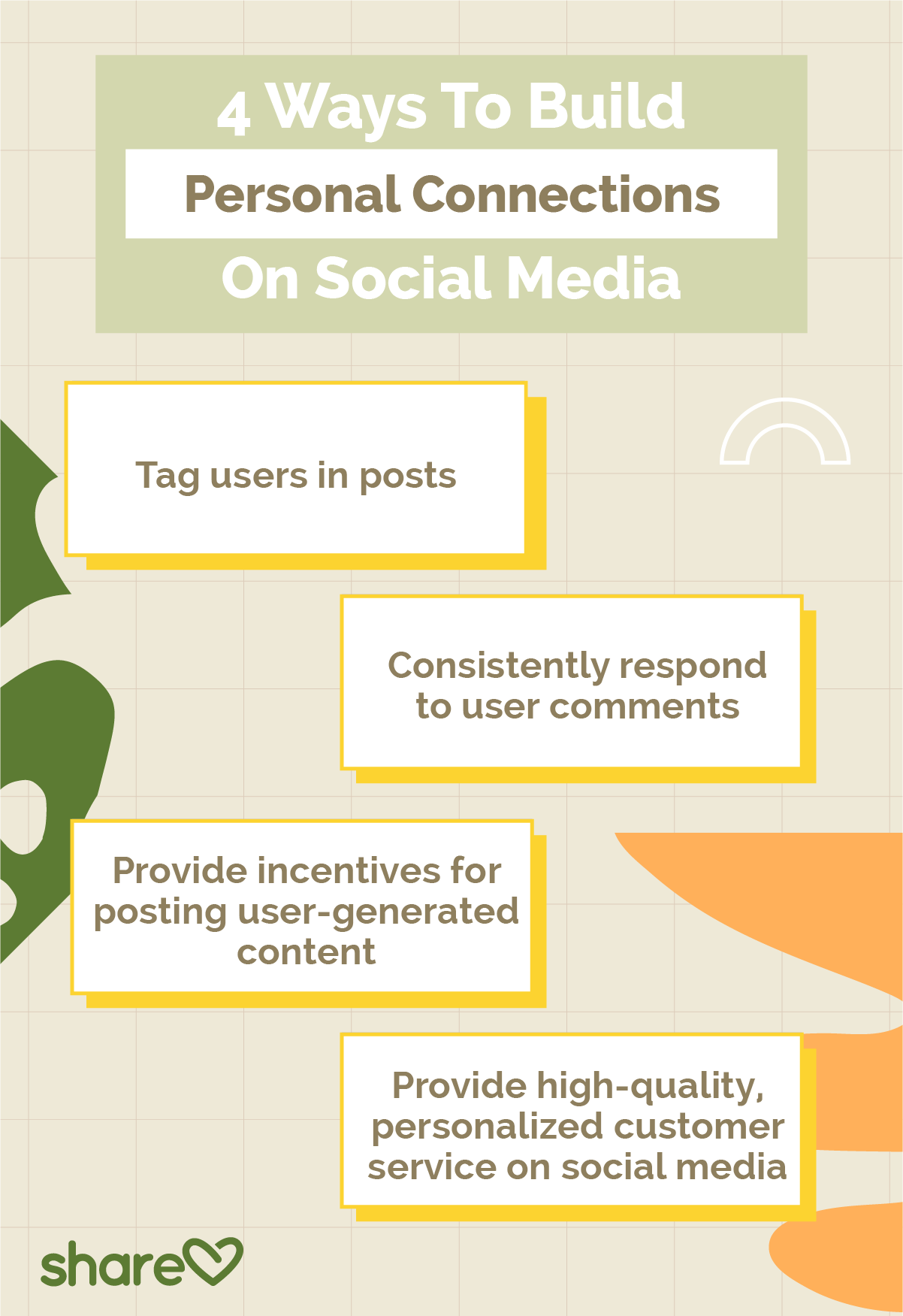
We’ve got several tips, tricks, and proven methods to help improve your brand’s comment engagement in our guide, How To Manage Instagram Comments To Increase Followers And Engagement.
If you’re serious about building a connection with your social media followers, Sharelov’s commenting feature allows your team to track and respond to comments from your community dashboard.
The commenting tool is free to Sharelov subscribers — and if you haven’t subscribed to Sharelov yet, you can sign up for a free trial and check it out right now.
Embracing Uncertainty And Disruption In 2021
Congratulations to all marketing teams, marketers, brands, companies, and businesses — for making it through 2020.
The year has granted us skills we previously dabbled in, but rarely practiced full time: the ability to meet demand, pivot 180 degrees overnight, embrace uncertainty, and create a path to survival amidst unprecedented disruption.
Several of the most-used technologies and formats of 2020, such as social media shopping, enhanced content, and personalized experiences, will become essential in 2021.
While no one knows for certain what the coming year will bring, we do know that ROI can be improved with time-tested marketing techniques.
Use niche marketing, social media engagement, and sensitivity to your audience — along with social listening and analytics tools — to guide your content and campaigns in 2021.

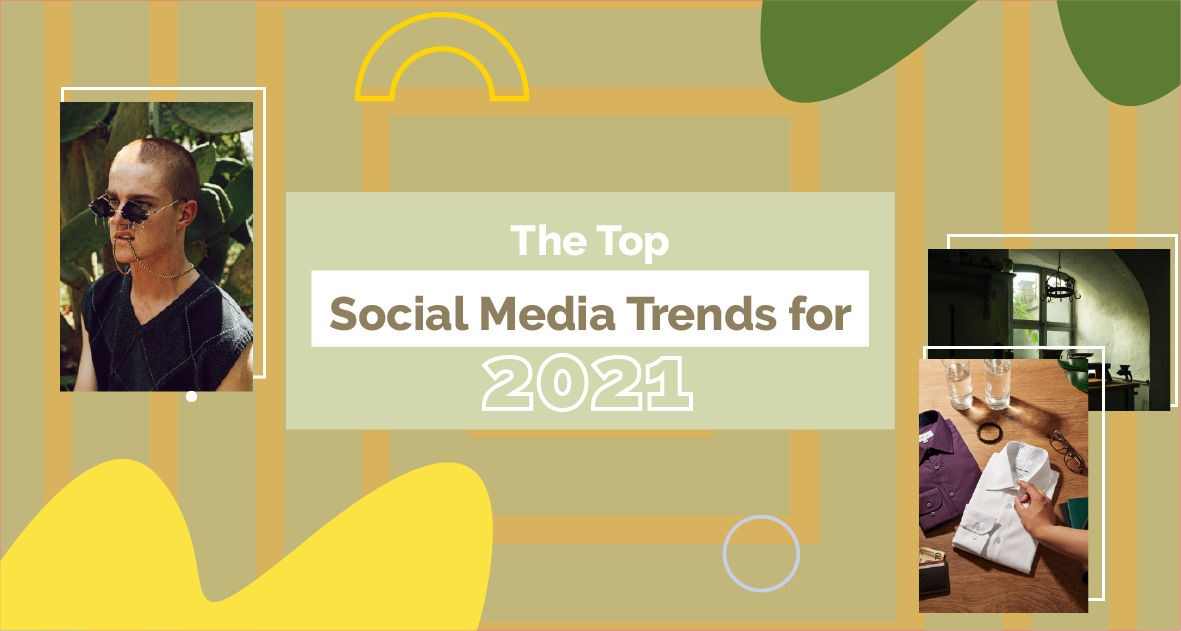
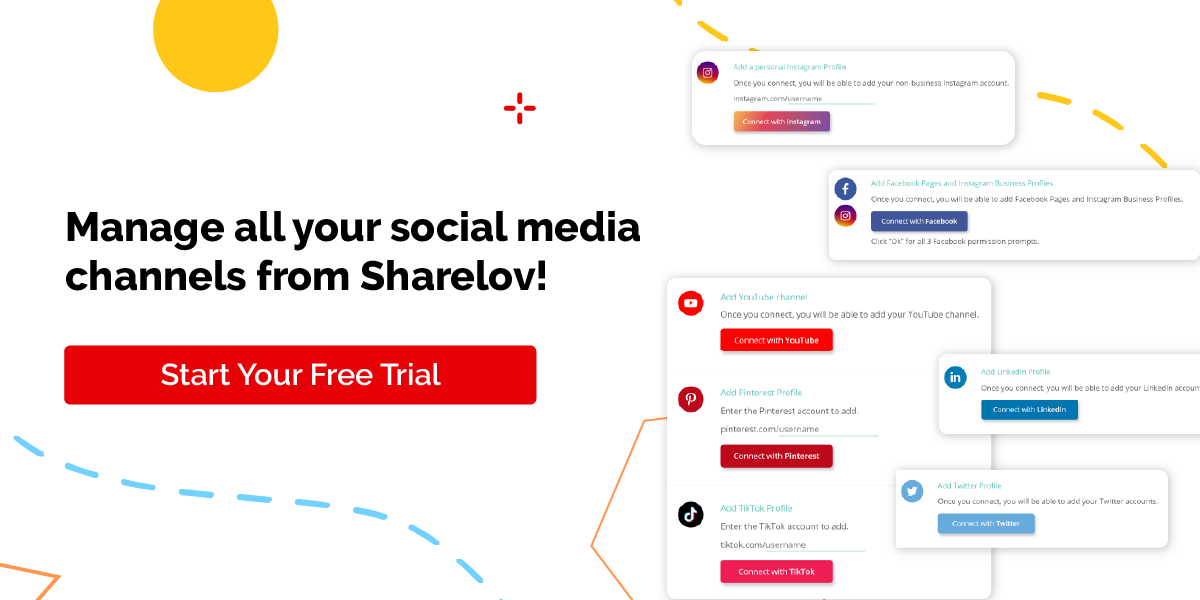
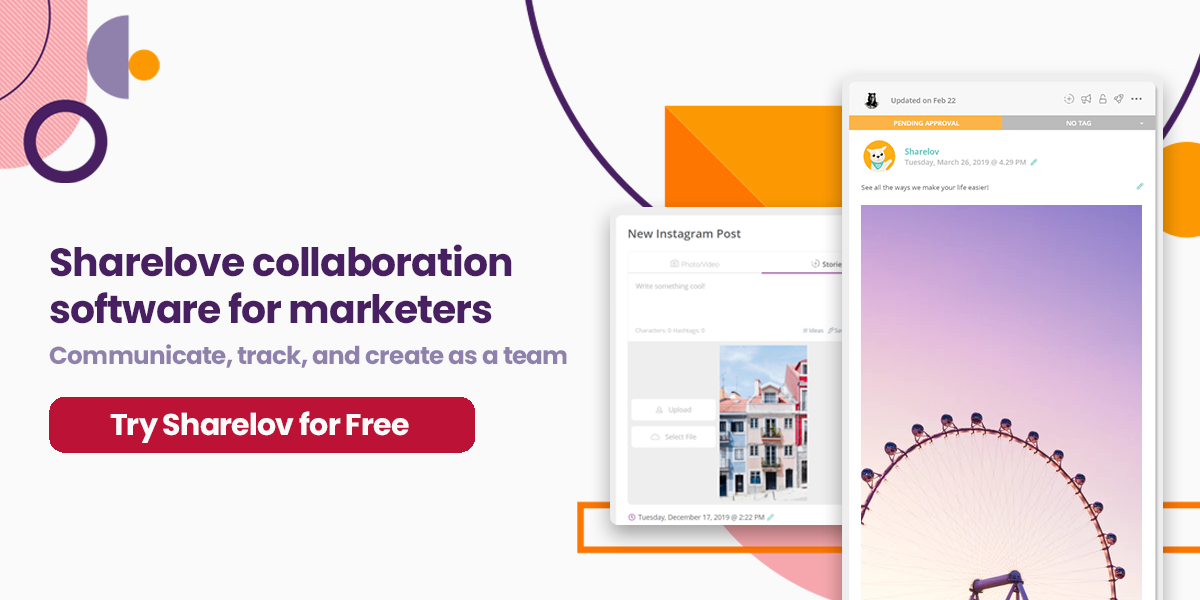
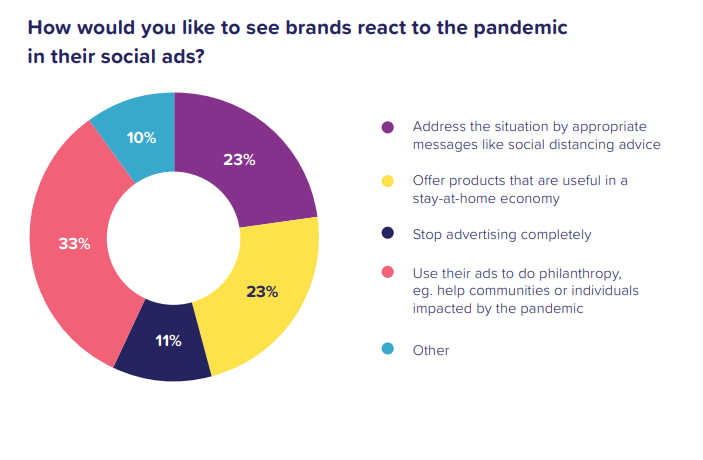

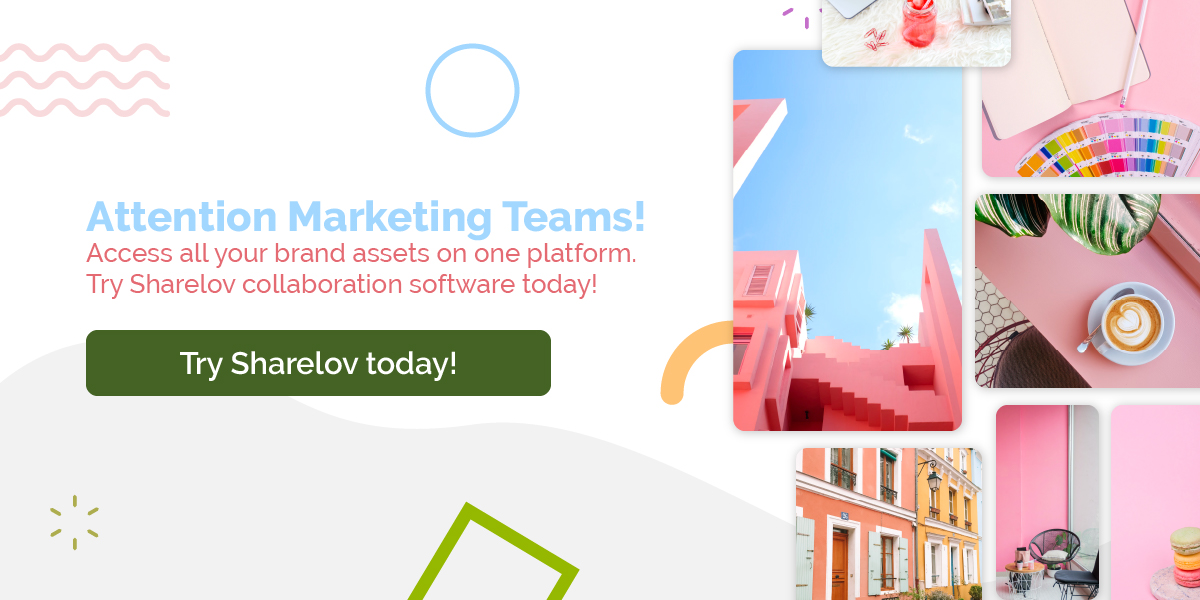

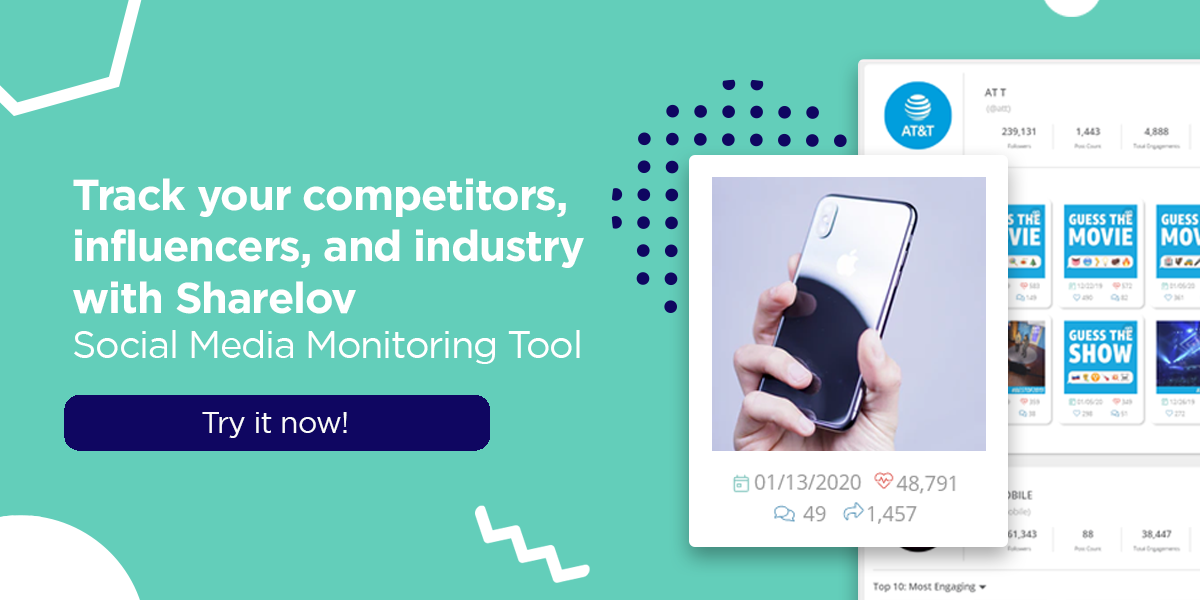
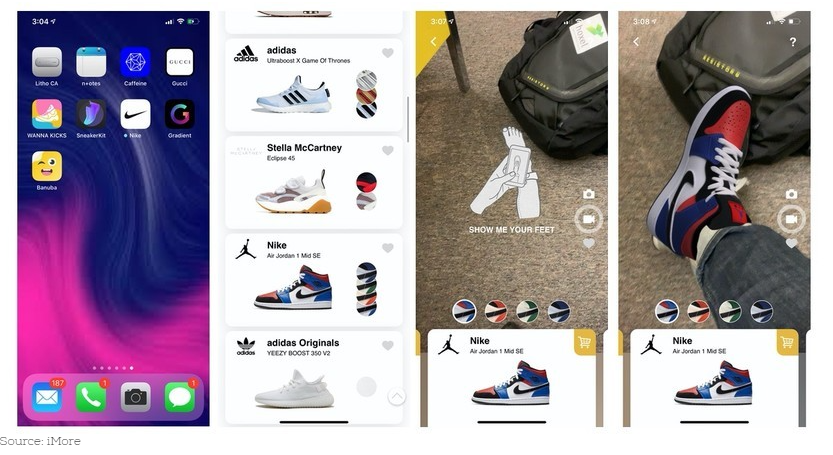
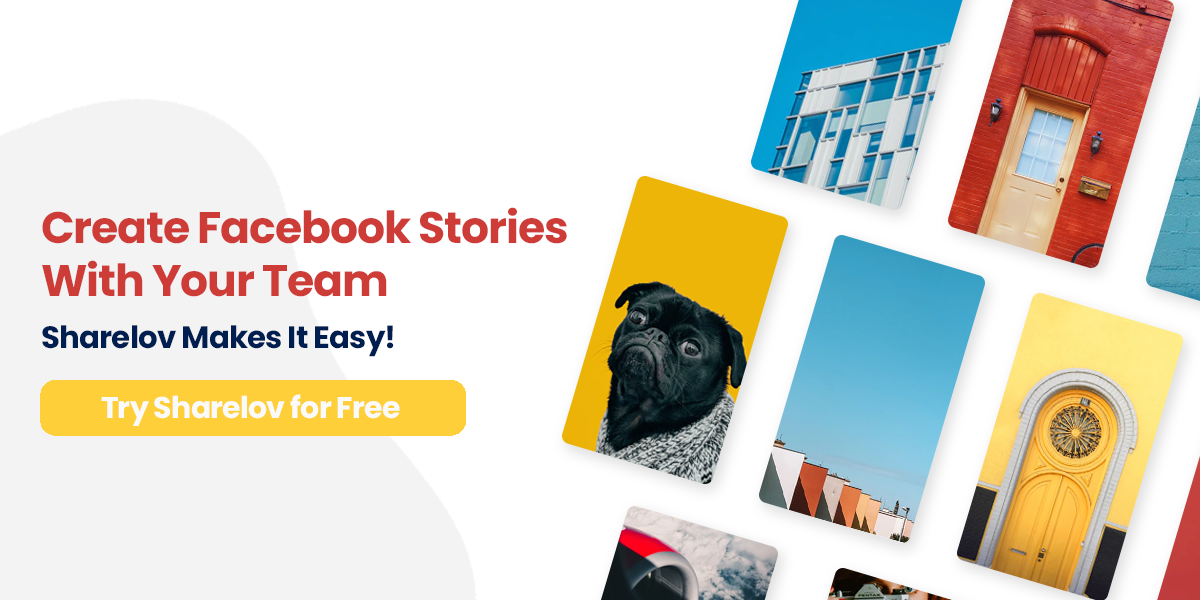
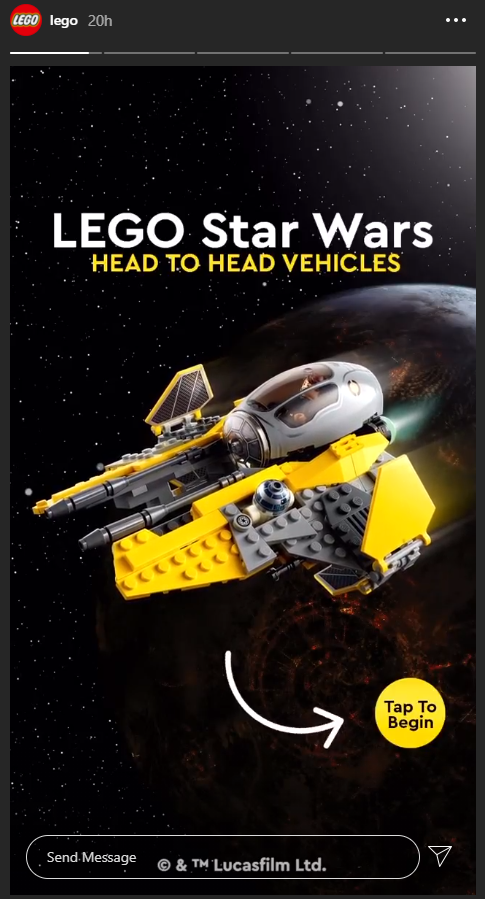

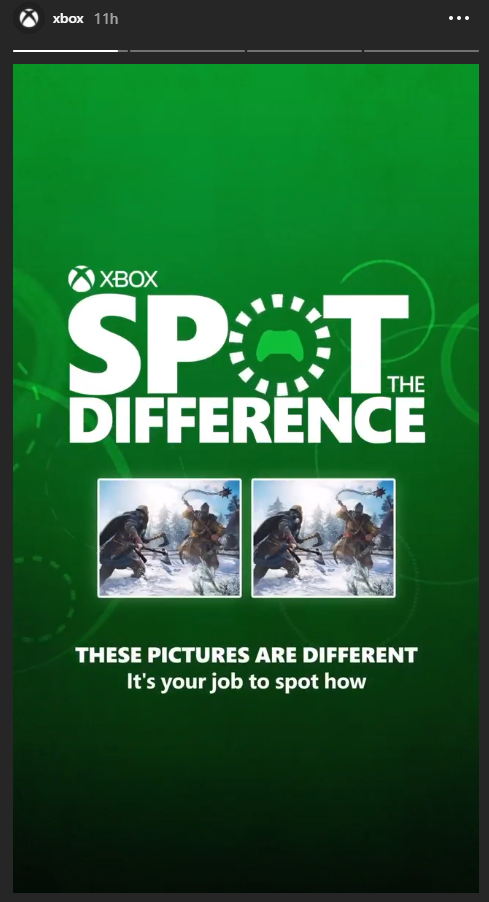

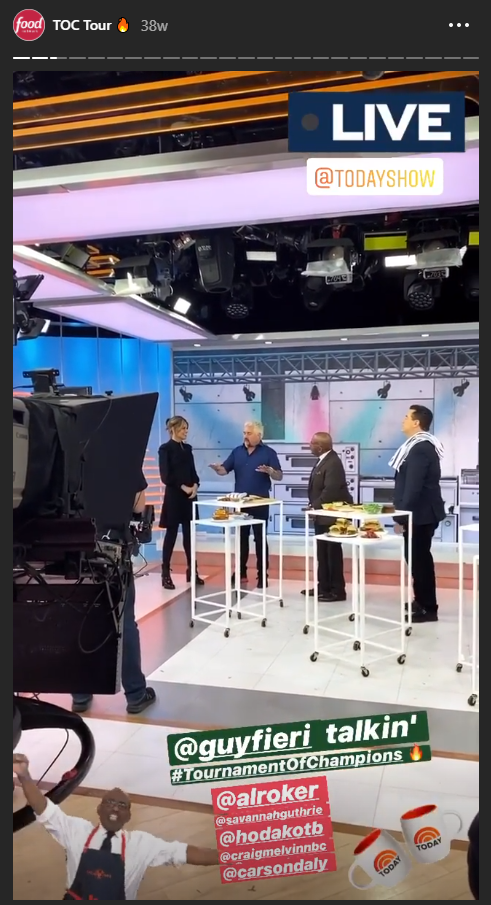
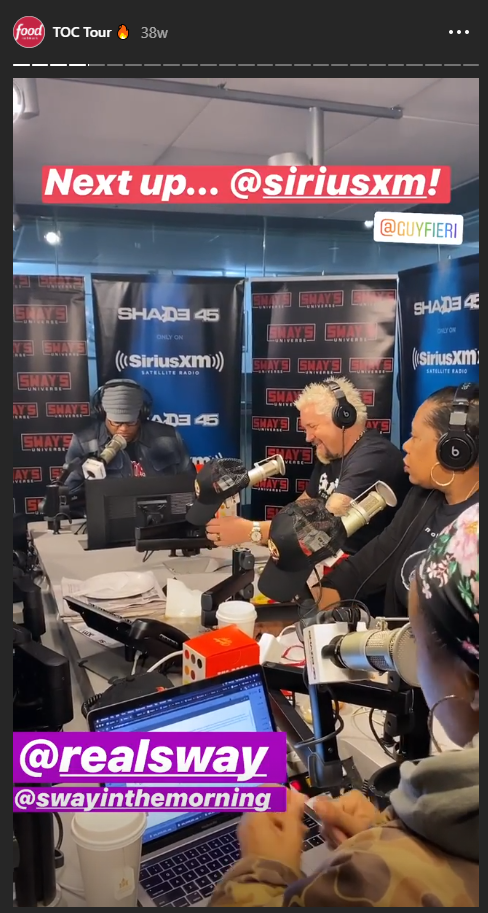
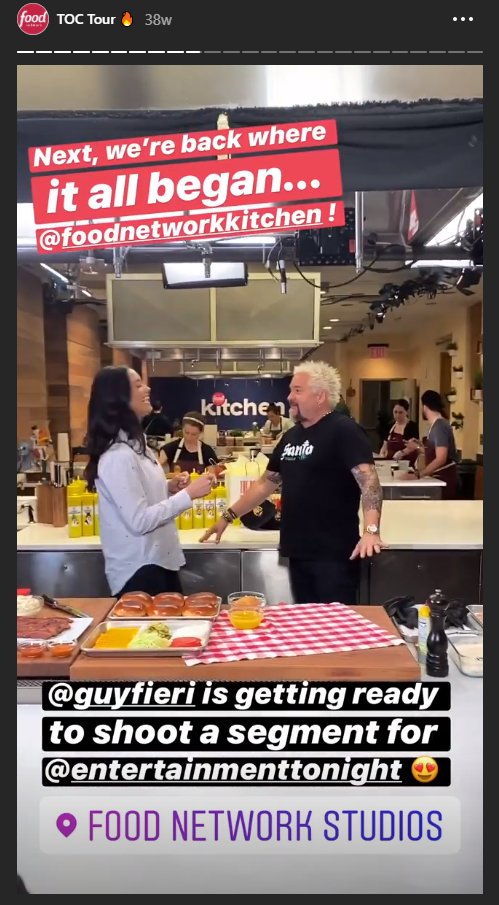
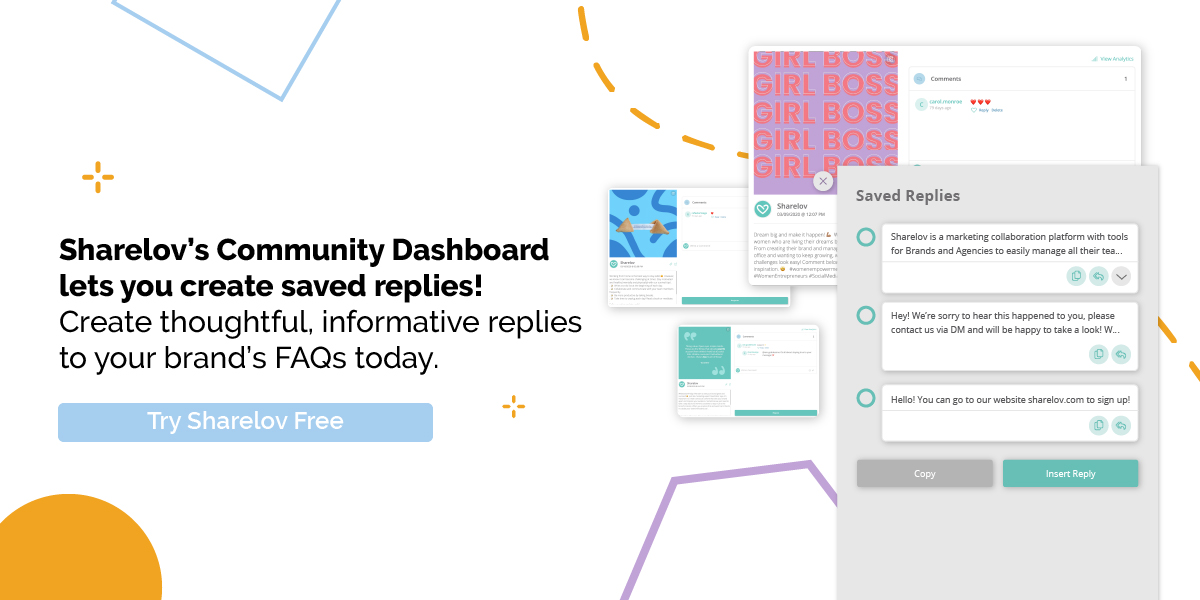
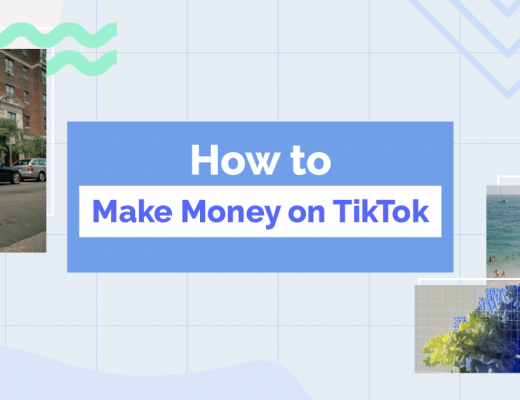
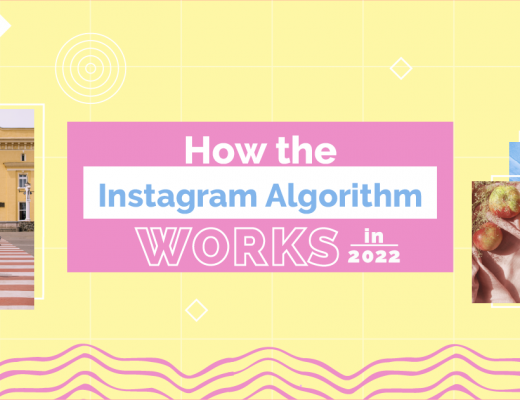

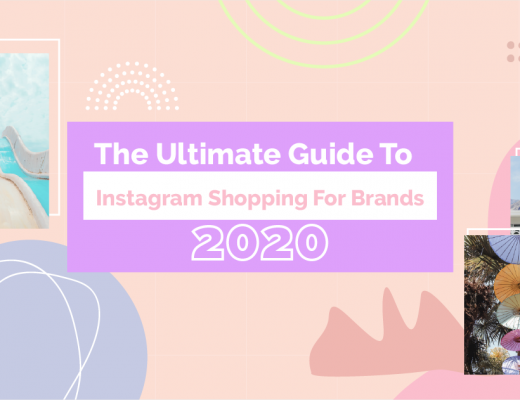
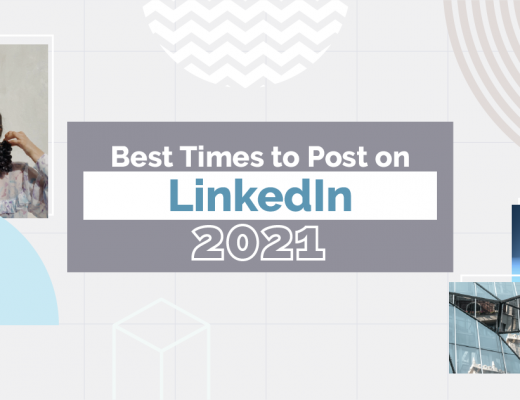
Social Media Shopping
Nearly three-quarters of (73%) U.S. consumers tried new shopping behaviors during the Covid crisis, and most (up to 83%) intend to continue these behaviors going forward.
Nearly one-third of consumers used social media to discover new products and services in 2020.
Chances are, those numbers will increase as people get back out to work and begin shopping for more than just groceries, essential products, and household goods.
Source: Aug 2020 report by Smartly.io, as pandemic developed
Across all online formats, timing and technology merged during lockdowns, quarantines, and distancing.
Since Facebook and Instagram had already begun testing and launching social shopping tools prior to the pandemic, the two platforms were well-prepared for the influx of online shoppers when the pandemic hit.
Brands that sell online products should consider testing Instagram and Facebook selling tools in 2021.
The direct-selling tools provided by the social platforms, such as product tags, shops, and live-stream shopping, are now well-tested and developed, plus their audiences are accustomed to buying directly on the platforms.
You don’t need to sell directly on social media platforms to benefit from consumers’ love of social shopping.
Brands that don’t have retail products or aren’t approved to sell directly on one of the two major social platforms can use advertising or Lov.link (Instagram) to sell their products and services.